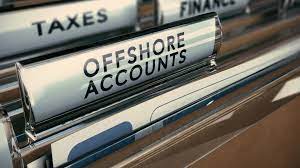The same standard paperwork is needed to open a bank account abroad as it is at home. You could be required to submit a W-9 form, a copy of your driver’s licence or passport, and some form of address verification, such a utility bill. An apostille stamp is a form of a mark used globally to confirm documents are legal. It required the bank in particular circumstances, along with notarization. To make an account in offshore, you can know more details with https://offshorecompanyregister.com/open-offshore-account-in-banks-of-various-jurisdictions/
What is a bank account offshore?
A bank account opened in a nation other than your own is referred to an offshore account. You can do regular financial operations in a different currency if you have a bank account. Anyone can open a bank account overseas; it’s not just for the wealthy. The rules and regulations governing taxation and disclosure tracks require you to present proof of your identity and address. If you need the more details see through offshorecompanyregister.com for more ideas. Additionally, a bank in another nation might inquire about your reasons for liking create an account there and request references from your present bank (this could take the form of bank statements).
What are the advantages of international banking?
Here are some typical features and advantages, though each offshore account will have unique ones as well:
- Possible tax-efficient investments and savings across currencies,
- Nevertheless, any tax advantages would depend on your specific situation.
- possess funds, make payments, and receive fees in several currencies
- in charge of foreign exchange
- gain access to global knowledge and investment counsel
Keep your money related to your local accounts in a safe place that is easily accessible.
If you relocate, keep your bank account.
Regular banking capabilities include a debit card, online and mobile banking are also frequently included. Several Justifications for Opening an Offshore Bank Account. One’s lifestyle is frequently a factor in decision open an offshore bank account. For instance, an increasing number people are choosing to become expatriates or digital nomads. Even if it’s still a meaningful life, online employment can make simpler. You might have one bank account in your country of origin and one performance in each nation where you spend a lot of time, depending on the situation.
What else must you take into account?
Tax
Offshore accounts may offer a tax-efficient alternative to investing protection must report your income to any applicable tax authorities and declare any interest you get from offshore accounts.
Costs
Some offshore accounts could impose monthly maintenance fees for international wire transactions. For instance, there is no monthly fee for the Expat Bank Account, and account transfers are free. You should study the terms and conditions before opening an offshore account because additional fees can be applicable.
Security
The Financial Services Compensation Scheme (FSCS), which provides up to £85,000 in protection for savings kept with UK banks and building societies, does not apply to offshore accounts.
Money Depositing
It might get hard to deposit into an offshore bank account. Wire transfers commonly used to finance these accounts. Moving money can be rather expensive because recurring costs associated with international wire transactions. Even so, it might be your best choice. Checks from your nation of origin might not be honoured, and using a currency exchange can get expensive. Before opening your offshore account, make sure to research this.

